
Making Homelessness History
Historically the approach to tackling homelessness has been a fragmented one. Multiple agencies doing their level best to deliver their part of the solution. The challenge is that homelessness and hopelessness walk hand-in-hand and without hope, the will to navigate a complex, fragmented pathway to recovery simply evaporates.
The solution is to develop a unified pathway that is underpinned by a consistency of relationship. It is this consistency that allows a ‘relational gel’ to scaffold the journey and re-ignite hope in the individual.
In Wolverhampton a small team of people have stepped back, taken a look at the bigger picture, and begun working together. The result is the Enterprise Homes Group, a new charity that is breaking ground by bringing together five complementary streams of activity behind a single vision – to make homelessness history, leaving no one behind in the process.
The team behind the new venture are quick to point out that this does not mean the eradication of homelessness as there will always be issues that lead to people losing their home. However, the belief is that in many circumstances homelessness can be prevented before it happens, but where it is inevitable it should be short-lived.
Enterprise Homes is led by CEO Matt Lambert and brings together a housing charity, a Social Enterprise training program, a Church Shelter, a Rotary Shelter Bus and a Social Enterprise Property Lettings agency – all working as a unified pathway to enable the homeless to realise individual pathways that lead to a new start in life.
The Church Shelter is a key starting point for this unified pathway. Started in 2016, it now runs all year round and provides a place of safety, rest and recuperation for rough sleepers. Essentially its family run culture operates as an incubator for forming relationships. It is these relationships of trust that encourage the guests to take the first steps down a mentored pathway out of homelessness.
It is currently planning to move to new premises where it will co-locate with another homelessness organisation to provide a 24/7 ‘homelessness hub.’ This will allow agencies and individuals to work together to provide overnight accommodation, food services, training opportunities and structured day-round activities. The hub will provide opportunities to engage better by offering seamless support to the individual and will play a key role in the unified pathway.
It will also be the base for a Rotary Shelter Bus that combines overnight accommodation with some clinical space so that it doubles up as a health/mental health provision for the city. It has 10 individual pod spaces, with provision for pets incorporated, and in the long run it will be self-sustaining through advertising.
Enterprise Homes also embraces Re:Gen Maintenance Services launched in 2018 as a not-for-profit training subsidiary providing free residential training courses to individuals who are either homeless or at risk of homelessness. It is akin to a residential apprenticeship that combines free accommodation with training in a trade. Providing the same supportive culture as the Shelter, it was established to enable the Shelter’s guests to progress towards employment and learn about maintaining a tenancy.
As part of Enterprise Homes, Hope into Action: Black Country is the supported accommodation provider. It has an established track record of enabling churches to provide homes for the homeless. It provides affordable accommodation (thereby encouraging employment) with support through Empowerment Officers and befriending teams from partner churches. It increases a resident’s capacity to maintain their tenancy by building a positive network of support.
Finally, the fifth complementary stream of the Enterprise Homes Group is a Social Enterprise Lettings and Property Management agency. This will make more affordable accommodation available in the private sector working with landlords who would otherwise be wary of taking in former homeless individuals through fear related to Universal Credit risks.
The final word is left to Matt Lambert. “This is a human centred approach that is seeking to put in place systems that are designed to achieve the desired outcomes of the individual and recognise that if things are not working for a particular individual, it is the system that is broken and needs to change and adapt, not the individual.”
Related posts
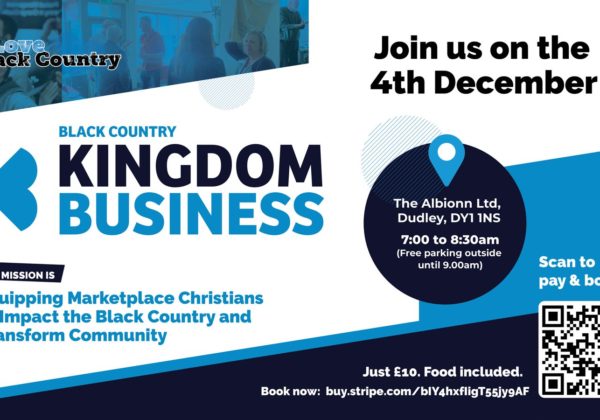 Kingdom Business – Last meeting of the Year - Join Us on December 4th Event Details 📍 The Albion Ltd, Dudley, DY1 1NS 🕖 7:00 AM – 8:30 AM (Free parking available until 9:00 AM) 💷 Just £10 (includes food) Black Country Kingdom Business is back for its fourth gathering, and we’re excited to welcome you to another morning of connection, inspiration, and insight […]
Kingdom Business – Last meeting of the Year - Join Us on December 4th Event Details 📍 The Albion Ltd, Dudley, DY1 1NS 🕖 7:00 AM – 8:30 AM (Free parking available until 9:00 AM) 💷 Just £10 (includes food) Black Country Kingdom Business is back for its fourth gathering, and we’re excited to welcome you to another morning of connection, inspiration, and insight […]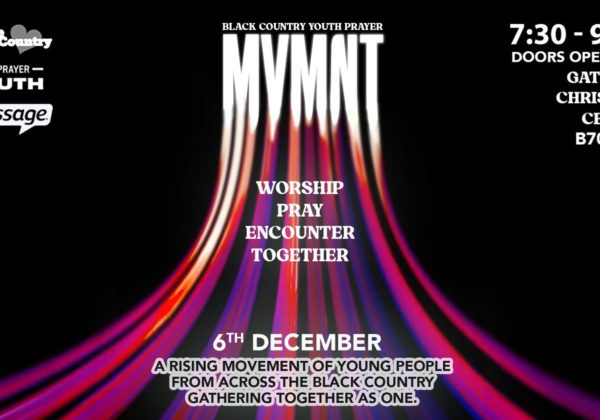 MOVEMENT – Young people gather! - We’re back! After successfully gathering over 200 young people in the last two gatherings, we’re keen to come together again. This is MOVEMENT, named by young people at Together Festival 23 – a moment to worship, pray and gather the young people of our region. Facilitated by Love Black Country, Youth 24/7 Prayer and The Message Trust, we […]
MOVEMENT – Young people gather! - We’re back! After successfully gathering over 200 young people in the last two gatherings, we’re keen to come together again. This is MOVEMENT, named by young people at Together Festival 23 – a moment to worship, pray and gather the young people of our region. Facilitated by Love Black Country, Youth 24/7 Prayer and The Message Trust, we […]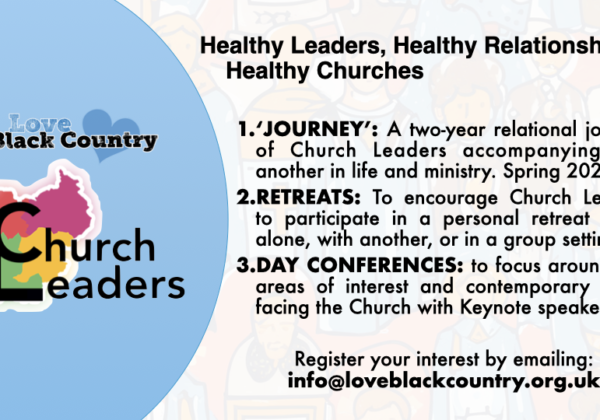 Empowering Church Leaders: A New Initiative for Growth and Connection - At Love Black Country, we believe that healthy churches begin with healthy leaders. That’s why we’re launching a transformative initiative to support, strengthen, and inspire Church Leaders across our region. With the theme “Healthy Leaders, Healthy Relationships, Healthy Churches,” this initiative offers three key opportunities to help leaders grow personally, relationally, and spiritually. 1. JOURNEY: […]
Empowering Church Leaders: A New Initiative for Growth and Connection - At Love Black Country, we believe that healthy churches begin with healthy leaders. That’s why we’re launching a transformative initiative to support, strengthen, and inspire Church Leaders across our region. With the theme “Healthy Leaders, Healthy Relationships, Healthy Churches,” this initiative offers three key opportunities to help leaders grow personally, relationally, and spiritually. 1. JOURNEY: […]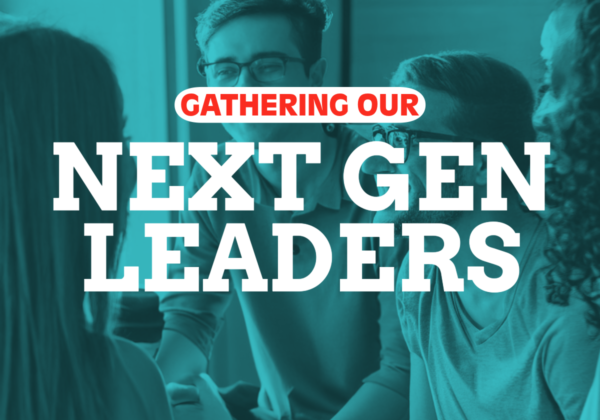 Next Gen Leaders’ Gathering - As part of our investment into the Next Generation, we continue to network and facilitate relational unity between kids and youth workers across the region. On Monday 7th October, we are hosting a gathering for those involved with leading and working with children and young people in any capacity. We will pray, worship and share […]
Next Gen Leaders’ Gathering - As part of our investment into the Next Generation, we continue to network and facilitate relational unity between kids and youth workers across the region. On Monday 7th October, we are hosting a gathering for those involved with leading and working with children and young people in any capacity. We will pray, worship and share […]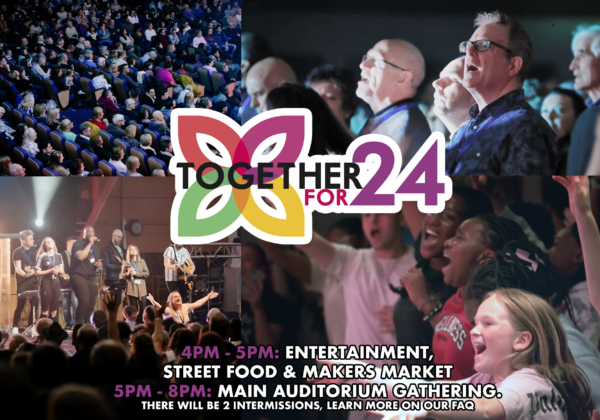 Our BIG November gathering – Together for 24 - Together for 24 On Saturday 16th November 2024, we are inviting Christians across the Black Country: To GATHER with the Church of the Black Country, to make a statement to our children and young people about the size of the Body of Christ to which they belong. To CELEBRATE what God is already doing through […]
Our BIG November gathering – Together for 24 - Together for 24 On Saturday 16th November 2024, we are inviting Christians across the Black Country: To GATHER with the Church of the Black Country, to make a statement to our children and young people about the size of the Body of Christ to which they belong. To CELEBRATE what God is already doing through […]